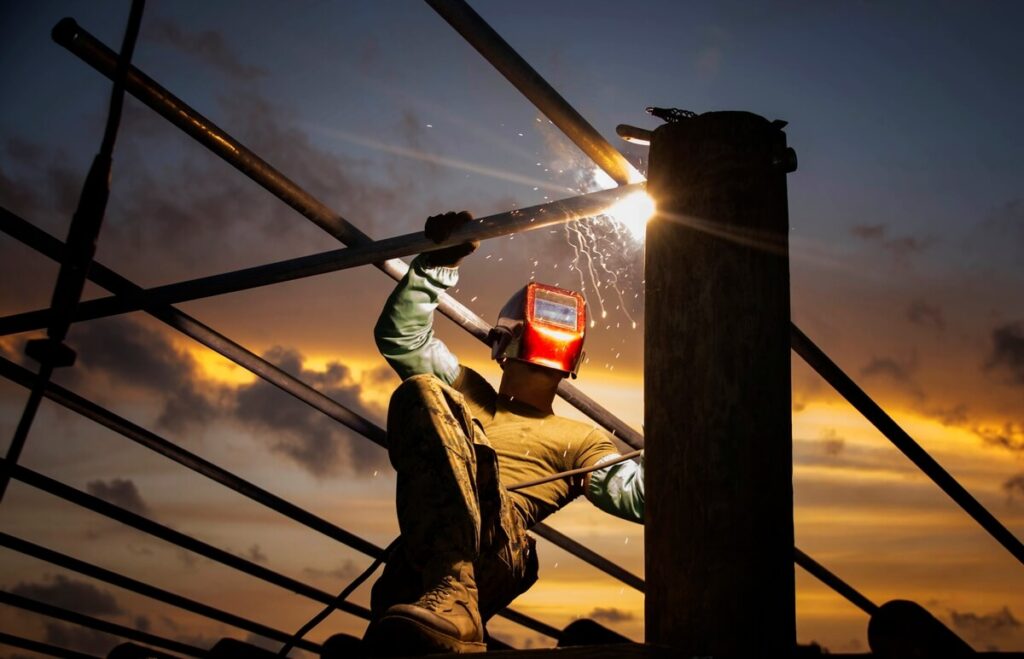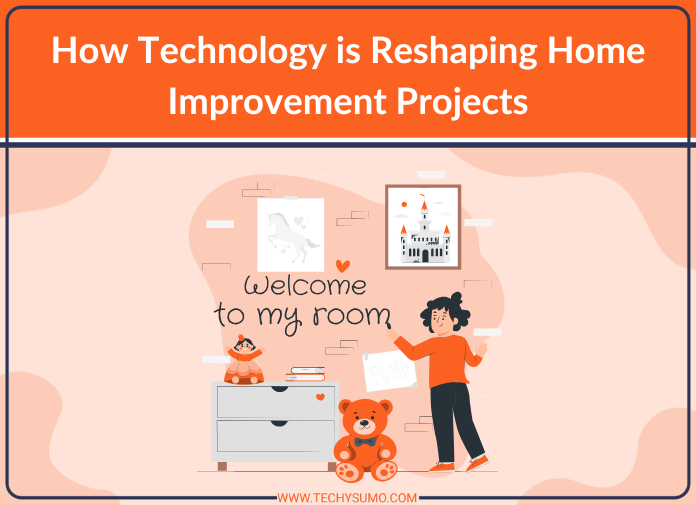Home improvement has entered a new era where technology isn’t just a convenience—it’s transforming the way homeowners design, renovate, and upgrade their spaces. From AI-powered design tools to automated smart home systems, innovation is making renovations easier, more precise, and cost-effective. Whether you’re planning a full-scale remodel or a minor update, modern technology is changing the way we approach home improvement projects.
Here’s how digital tools, automation, and smart innovations are reshaping the home improvement industry.
Table of Contents
- AI and Augmented Reality for Smarter Design Planning
- Smart Home Automation Enhancing Functionality
- Robotics and AI in Home Construction
- High-Tech Materials for Sustainability and Durability
- E-Commerce and Digital Marketplaces for Hiring Experts
- DIY Technology Empowering Homeowners
- Predictive Maintenance with Smart Sensors
- Closing Remarks
AI and Augmented Reality for Smarter Design Planning
One of the biggest challenges in home improvement is visualizing the final result before construction begins. Thanks to artificial intelligence and augmented reality, homeowners can now see how upgrades will look in real time.
- AI-powered room planners allow users to upload photos of their rooms and experiment with different layouts, furniture, and color schemes. Apps like Houzz, Roomstyler, and Planner 5D provide detailed renderings before any physical changes are made.
- Augmented reality paint apps such as Dulux Visualizer and Sherwin-Williams’ ColorSnap let users test different paint colors on their walls virtually.
- 3D virtual home walkthroughs, made possible by tools like Matterport, allow homeowners to create digital models of their space, helping contractors and designers better understand the scope of a project.
These innovations reduce costly mistakes and help homeowners make informed decisions before committing to a renovation.
Smart Home Automation Enhancing Functionality
Home improvement is no longer just about aesthetics—it’s also about integrating smart technology to make homes more functional, energy-efficient, and convenient.
Also Read
- Voice-activated home controls allow homeowners to manage lighting, thermostats, and security systems using assistants like Amazon Alexa and Google Home.
- Smart thermostats such as Nest and Ecobee learn household routines and adjust temperatures accordingly, improving energy efficiency and lowering utility bills.
- Automated lighting systems like Philips Hue and Lutron provide customizable solutions that change color and brightness and operate on schedules.
These upgrades not only enhance daily convenience but also add long-term value to a home.
Robotics and AI in Home Construction
Technology is making home improvement projects more efficient with the help of robotics and AI-powered automation.
- AI-powered project management tools like Buildots analyze job site footage in real time, ensuring construction stays on track and reducing costly delays.
- 3D printing technology is revolutionizing homebuilding, with companies like ICON and Apis Cor constructing entire homes in just days. These structures are durable, cost-effective, and environmentally friendly.
- Robotic construction assistants, such as the SAM100 (Semi-Automated Mason), can lay bricks at six times the speed of a human worker, while robotic painters ensure a flawless finish.
These advancements are increasing precision, reducing labor costs, and accelerating project timelines.
High-Tech Materials for Sustainability and Durability

Sustainability is becoming a key factor in home improvement, with innovative building materials offering better energy efficiency and durability.
- Self-healing concrete uses bacteria that activate when cracks form, repairing itself without human intervention.
- Smart glass windows automatically adjust their tint based on sunlight exposure, reducing the need for excessive heating and cooling.
- Recycled and composite materials, such as bamboo flooring and countertops made from recycled glass, offer eco-friendly alternatives to traditional materials.
These materials not only help reduce environmental impact but also lower long-term maintenance costs.
E-Commerce and Digital Marketplaces for Hiring Experts
Finding reliable contractors and designers used to be a time-consuming process, but technology has streamlined it through digital platforms that connect homeowners with skilled professionals.
- On-demand home improvement services allow users to find professionals for everything from painting to plumbing.
- AI-driven contractor matching uses algorithms to pair homeowners with experts best suited to their specific needs.
- Virtual consultations and AI-generated cost estimates allow professionals to assess project feasibility without the need for an initial in-person visit.
For those seeking expert craftsmanship, hiring professional interior decorators near me ensures that finishing touches such as painting and decor are handled professionally, elevating the final look of a home renovation.
DIY Technology Empowering Homeowners
Technology isn’t just benefiting professionals—it’s also giving homeowners the confidence to tackle projects themselves.
- AI-powered measuring tools, such as MeasureKit, turn smartphones into digital measuring devices, ensuring accuracy in DIY renovations.
- Smart power tools with Bluetooth capabilities adjust speed and precision based on the project at hand.
- Online learning platforms like YouTube and MasterClass provide step-by-step tutorials for everything from installing tiles to creating custom cabinetry.
With these tech-driven resources, homeowners can take on small projects themselves while saving money.
Predictive Maintenance with Smart Sensors
Preventative maintenance is essential for avoiding costly repairs, and smart sensors are making it easier than ever.
- Leak detection sensors, such as Flo by Moen, identify leaks before they cause significant water damage.
- HVAC monitoring systems track air quality and system performance, notifying homeowners when maintenance is needed.
- Foundation and structural health sensors detect shifts in a home’s foundation, alerting homeowners to potential structural issues.
These predictive technologies help homeowners address small problems before they turn into expensive repairs.
Closing Remarks
Technology is reshaping home improvement in ways that make renovations more efficient, precise, and accessible. From AI-driven design tools to smart home automation, robotics, and eco-friendly materials, homeowners now have more control over their projects than ever before.
By embracing these innovations, renovations become more cost-effective, sustainable, and tailored to individual needs. Whether hiring professionals, tackling DIY projects, or integrating smart home features, technology is making home improvement smarter and more efficient.






